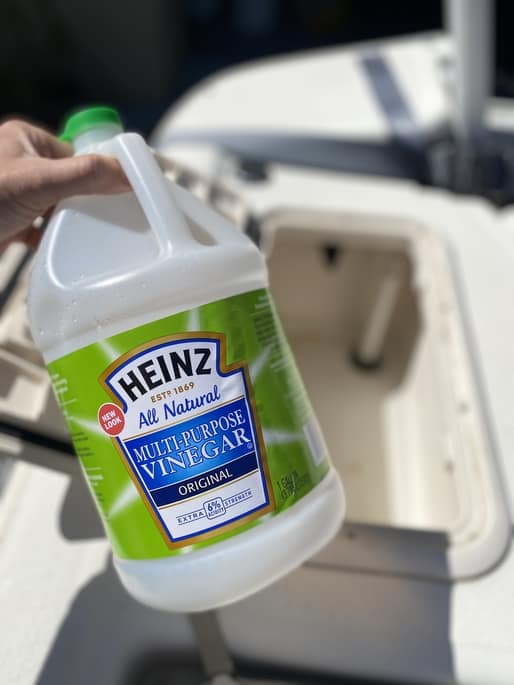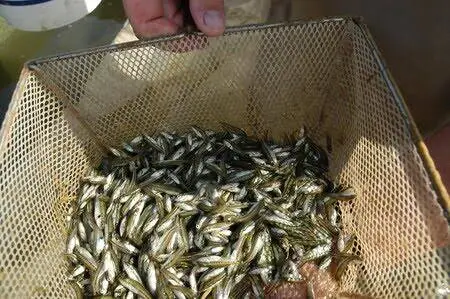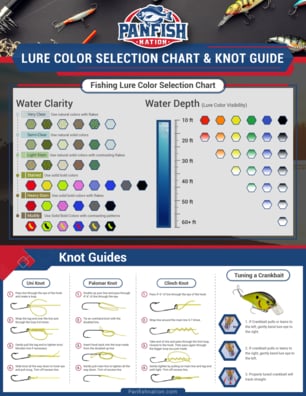There is nothing worse than parking the boat in the garage, only to realize a few days later that an unbearable stench is emitting from your livewell or aeration tank.
Yuck… But don’t worry, it happens to everyone!
Whether you forgot to flush it out or left some stinky bait inside, today I’m going to tell you the safest way to get fish smell out of a livewell.
Table of Contents
How To Get Rid Of Fishy Livewell Smell Safely
The safest way to get the fish smell out of a livewell is to use a non-toxic and natural deodorizer like white vinegar. First, clean your livewell with fresh water and soap. After flushing out the system, plug your livewell drain and fill the internal hoses and pipes with white vinegar. Let this sit and soak for 1 hour, then flush again with fresh water.
A livewell is a great asset, (especially in bass boats for tournament anglers!) It can be used to hold live bait or to keep your catch alive and fresh.

If you don’t take care of your livewell however, the smell can become a real problem and actually harm the fish you put inside of it.
Fish have a distinct odor that can build up in a Livewell over time. This fishy smell comes from a chemical called trimethylamine oxide.
The longer anything containing this compound stays in your livewell, the more it will oxidize and smell, so it is important to clean it every time!
Fortunately, several ingredients are very effective for cleaning out the smell and the things that cause it.
Why Use White Vinegar?
Vinegar is one of the best multipurpose cleaners out there.
It’s so effective because it contains high amounts of acetic acid which works to kill mold and bacteria and dissolve all kinds of dirt deposits.
Many household cleaners that you buy are simply acetic acid solutions with coloring and scent added.
White vinegar is the best kind to use for cleaning. Because it’s colorless, it won’t stain. It’s also completely biodegradable and inexpensive.
When you’re done, you can drain and rinse your livewell without worry. Vinegar rinses and dilutes easily and doesn’t damage the environment.
Vinegar is much easier to rinse out than bleach or other commercial cleansers, so you are less likely to leave a harmful residue in your livewell.
It’s also a lot cheaper!
Vinegar Mixes To Clean Livewell
Vinegar can also be combined with other common inexpensive cleaners to make it more powerful.
Baking Soda
Vinegar combines well with baking soda. Both are mild, safe, biodegradable cleaners, that complement each other.
After you add your vinegar to the water, just drop in a box or two of baking soda and let the aerators run!
Hydrogen Peroxide
Some people swear by hydrogen peroxide added to the tank at the same time as the vinegar.
This combination converts the acetic acid in the vinegar to a much stronger acid known as, peracetic acid.
This will definitely eliminate some strong smells that vinegar alone might not.
You need to be very careful with this combination. Peracetic acid can be dangerous to your skin, eyes, and even to your throat and lungs if the fumes are inhaled.
Sunlight Never Hurts!
Sunlight is one of the best sterilizers that there is. When your livewell is cleaned and rinsed, open it up to the sun and let the ultraviolet rays, heat, and drying clear out anything you missed.
In fact, every time I clean and flush out my boat, I open all of the hatches and compartments and let the sunshine do its work!
What Causes Boat Livewells To Stink So Bad?
The most common cause of foul odor from boat livewell units is decomposing fish, bait, or other natural materials stuck in the internal pipes and hoses.
That is why it’s so important to thoroughly flush out your livewell systems with safe cleaners after each use.
Certain fish species, especially largemouth bass, catfish, trout, and walleye are known to regurgitate what they have eaten when handled or placed inside a livewell.
Pretty gross eh?

Well, sometimes that rotten shad or crusty crawfish can get sucked down into your livewell pumps, discharge lines, or hoses where it rots, and stinks.
And remember livewell pumps in water from outside the boat.
This means wherever you are fishing, whether it’s a pristine lake or a muddy river…that is the water going into your livewell tank.
Most of the time this isn’t a problem, however, you never know what kind of water, or what kind of decomposing natural materials are mixed in.
You May Also Like: How To Keep Minnows Alive Without An Aerator
If you haven’t guessed yet, I love fishing and everything about it!
To learn more about why I started Panfish Nation, visit the About page and follow along on Social Media:


Download a copy of my FREE Lure Color Selection Chart & Knot Guide!
Stay up to date with fishing reports, tackle reviews, industry news, and much more! We respect your privacy, unsubscribe at any time.
